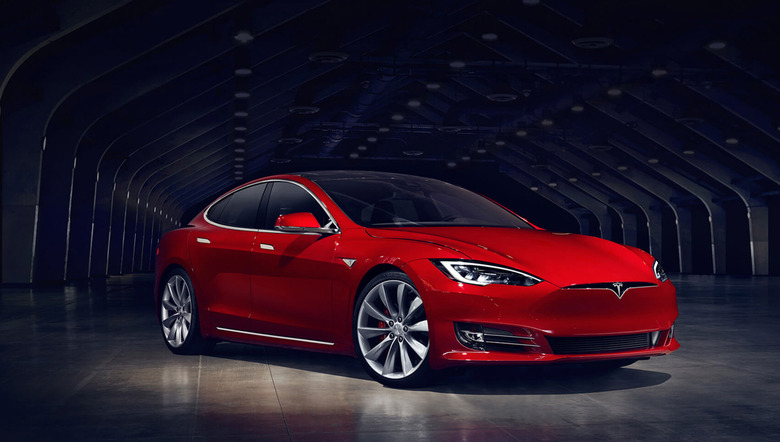Fatal Autopilot Crash Wasn't Tesla's Fault, Investigators Decide
The National Highway Traffic Safety Administration has closed its six-month-old investigation into the fatal crash of a Tesla Model S, which was being driven by the Autopilot system when it collided with a truck last May. The NHTSA will not seek a recall of Tesla's vehicles, and the report said that the agency's examination "did not identify any defects in the design or performance of the Automatic Emergency Braking or Autopilot systems."
The crash occurred on a highway in Florida on May 7th last year. The Tesla was being driven a few miles per hour over the speed limit in the left lane of a two-way highway, when a truck with a trailer turned across both lanes towards an exit. The Tesla's radar and cameras failed to pick up the trailer, and the Tesla drove directly into the side of it, killing the driver.
Since the accident, Tesla has updated its semi-autonomous Autopilot feature to force drivers to be more hands-on, and treat it like a driving aid rather than an actual Autopilot. Despite the name, Tesla says that Autopilot is still a beta feature that requires drivers to monitor the road just like normal.New Tesla cars also have an updated version of the Autopilot with more sensors, which should prevent a similar accident from happening again.
Despite the one fatal crash, Autopilot is statistically safer than human drivers. According to Tesla, Autopiloted vehicles have driven over 200 million miles by this point, with just one fatality. The average for human-driven vehicles is one fatality every 94 million miles, although the numbers are probably skewed a little, as a Tesla is safer than the average car in a crash, and the majority of Autopiloted miles will be driven on divided highways, which are safer than regular roads.
